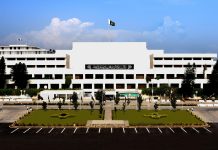By Ali Imran
ISLAMABAD: The Petroleum Division has proposed a framework for the liquefied petroleum gas (LPG) market comprising tax incentives, price deregulation, subsidised supply to poor households and a five-year tax holiday for infrastructure developers for sustainable fuel supply.
The framework also offers incentives for setting up LPG plants and tax break to LPG producers. Under the proposed framework, the LPG producer price will not be fixed. Consumer prices for local and imported LPG will be notified by the Oil and Gas Regulatory Authority (Ogra) every month based on the Saudi Arabian contract price, estimated discount, loading terminal charges, sea freight, port charges, other import incidentals, marketing costs, etc. Ogra will conduct a study within six months for the assessment of reasonable marketing costs for major cities and special freight zones. Petroleum levy on locally produced LPG will help equate the estimated supply costs of both imported and local LPG. Zero duty and taxes on the import of machinery and equipment for the installation of new LPG production plants/facilities has been proposed. Such fiscal incentives will not be available to vehicles used for travel. The Petroleum Division has proposed five-year tax holiday for LPG producers after the start of production and operation. Under the framework, LPG will be supplied to poor households across the country at subsidised rates under the Ehsaas programme by adopting the following mechanism:
Petroleum levy on locally produced LPG will not be used as a source of revenue generation, instead the levy will help balance local and imported LPG prices. The collected levy will be used for LPG supply to poor households at subsidised prices, mainly in Balochistan.
The government will allocate additional financial resources for wider LPG supply at subsidised prices across the country. Vouchers will be issued to the qualifying households that will only be used for the purchase of LPG cylinders. In six summer months, one LPG cylinder of 11.8 kg will be provided to a household per month at 25% of the applicable consumer price.
In six winter months, two cylinders of 11.8 kg will be provided to a household per month – first at 25% of the applicable consumer price and the second at 50% of the price. In case of any violation, either by a marketing company or its distributors at any stage of the supply chain, the marketing company will be held responsible including the cancellation of its licence depending on severity of the violation.
The existing moratorium on LPG consumption in public service vehicles will remain in place. Ogra will improve the enforcement mechanism to minimise/eliminate the illegal use of LPG in vehicles.
Commissioning of new LPG filling stations will not be allowed in future except for those to whom a provisional licence has already been granted by Ogra. For enhanced and adequate LPG supply in rural, remote and hilly areas of Balochistan, Gilgit-Baltistan, Khyber-Pakhtunkhwa (K-P) and Azad Jammu and Kashmir (AJK), all LPG producers will follow the following disposal mechanism:
LPG producers of the respective province will dedicate 20% of their production to the respective Provincial Holding Company, if any, for exclusive supplies in the respective remote and hilly areas.
Producers in K-P and Punjab, being adjacent provinces, will also dedicate 5% of their production to the Provincial/Public Holding Company of AJK and Gilgit-Baltistan, if any, for exclusive supplies in the respective remote and hilly areas.
Ogra will develop a mechanism to ensure that these 25% dedicated LPG volumes are supplied to the consumers in the rural, remote and hilly areas by the respective holding company without any sales to the second buyer. All LPG producers will also dedicate additional 10% of their production to gas utility companies for exclusive supply to LPG-air mix plants, if any.






